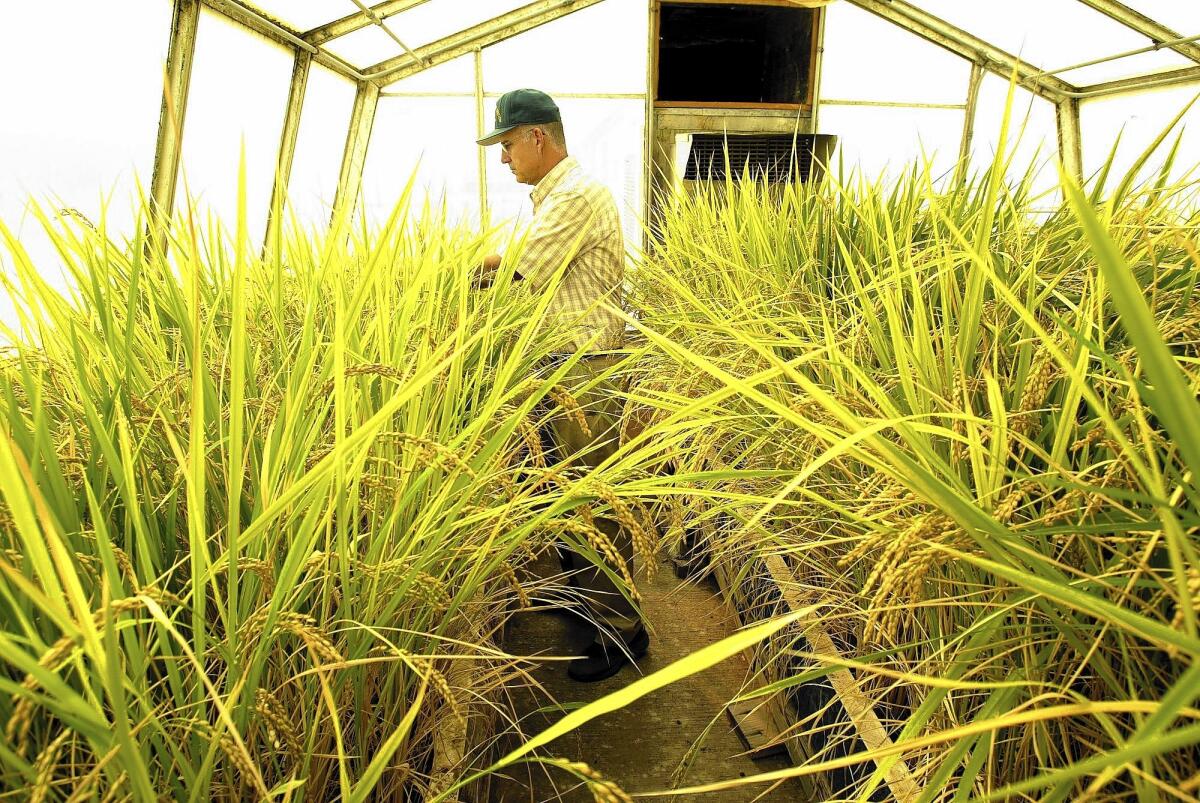Proposal reignites debate over labeling genetically modified foods

SACRAMENTO — The high-stakes battle over labeling foods with genetically engineered ingredients is back.
Less than two years after California voters narrowly turned down a labeling ballot measure, the state Senate is grappling with the issue. The 2012 campaign cost the food industry $46 million to fight, five times more than the amount spent by the measure’s proponents.
By a 5-2 vote last week, the Health Committee approved Senate Bill 1381, by Sen. Noreen Evans (D-Santa Rosa), which would require labeling of genetically engineered bulk and packaged foods beginning in 2016. The legislation goes to the Rules Committee and perhaps the Agriculture Committee, where it could face trouble.
The proposal defines genetic engineering as the manipulation of genes in a laboratory to make them resistant to certain pesticides or diseases.
Experts on both sides of the issue disagree vehemently. Proponents of labeling say they fear that eating such foods — often made from genetically modified corn, soybeans and sugar beets — could cause allergic reactions, asthma and autoimmune deficiencies. Growers, the grocery industry and many scientists counter that genetic engineering boosts production of foods that are no different — and no more dangerous — than non-engineered ones.
The bill does not declare whether genetically modified foods are good or bad, Evans testified. “It simply requires labeling.”
But Kent Bradford, a plant scientist at UC Davis, told the committee that labeling products would be expensive and would stigmatize hundreds of completely safe products. “Two trillion meals have been served” that contained genetically engineered ingredients, he said, “without any associated health impact.”
Gloves off
Meanwhile, the Assembly Health Committee last week unanimously approved a bill to repeal parts of a 2013 food safety law that would prohibit commercial cooks and bartenders from using their bare hands when preparing meals or mixing drinks.
The law mandated that ready-to-eat food be handled with utensils or gloves in most cases. The law took effect in January with six months to comply.
Chefs and restaurateurs have been protesting, while health officials stressed that handling food without gloves can contribute to the spread of harmful bacteria.
“It’s not about whether there are gloves or not,” said Assemblyman Richard Pan (D-Sacramento), a medical doctor and author of this year’s repeal bill. “It should be about whether the local business and the health inspector have worked together to create a safe environment for the customer.”
Electricity bonuses
Customers at investor-owned utilities are getting a break: The first of new credits on monthly bills. It’s a share of money collected by the state from companies buying the rights to put greenhouse gases into the atmosphere.
Southern California Edison ratepayers are pegged to get $40 split between April and October installments, San Diego Gas & Electric about $36. Los Angeles Department of Water and Power customers won’t get anything because municipally owned utilities are not part of the program.
Twitter: @MarcLifsher







